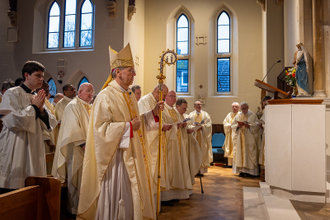Trinidad and Tobago: Campaigners disappointed after court upholds death sentence ruling

A man in Trinidad and Tobago who was sentenced to death by hanging in 2011, has lost an appeal for a reprieve. Jay Chandler, who is 40, was convicted of stabbing another prisoner, Kern Phillip, in October 2004. Trinidad and Tobago, with more than 30 people on death row, is the only English speaking Caribbean country that retains a mandatory death penalty for murder - a hangover from British colonial rule.
The Greater Caribbean for Life (GCL) and the Catholic Commission for Social Justice have said they are "extremely disappointed in the judgment delivered on 16 May by the Judicial Committee of the Privy Council (JCPC) to uphold that the mandatory death sentence for murder in Trinidad and Tobago (TT) is constitutional - because of the savings clause in TT's Constitution
The nine Law Lords at the JCPC opined that the savings clause extended beyond the mandatory death penalty and that allowing the appeal would introduce considerable uncertainty into the law. They were not persuaded by the reasoning of the Caribbean Court of Justice (CCJ) in Nervais & McEwan that the case of 2005 Charles Matthew (Matthew v The Queen [2004] UKPC 33) was wrongly decided. And so, they did not overturn that decision.
In a case in 2018, when the CCJ ruled that the savings clause in Barbados' Constitution was unconstitutional, the then President of the CCJ, Sir Dennis Byron, stated, inter alia: "Laws should not be calcified to reflect Colonial times." GCL and CCSJ agree with this statement.
In 2017 Pope Francis approved a new revision of paragraph number 2267 of the Catechism of the Catholic Church that makes it clear that the death penalty is inadmissible in all circumstances. The new text reads:
'Recourse to the death penalty on the part of legitimate authority, following a fair trial, was long considered an appropriate response to the gravity of certain crimes and an acceptable, albeit extreme, means of safeguarding the common good.
Today, however, there is an increasing awareness that the dignity of the person is not lost even after the commission of very serious crimes. In addition, a new understanding has emerged of the significance of penal sanctions imposed by the state. Lastly, more effective systems of detention have been developed, which ensure the due protection of citizens but, at the same time, do not definitively deprive the guilty of the possibility of redemption.
Consequently, the Church teaches, in the light of the Gospel, that "the death penalty is inadmissible because it is an attack on the inviolability and dignity of the person", and she works with determination for its abolition worldwide.'
In the year 2022, we urge the Government of Trinidad and Tobago to reflect on these words and change the 1925 law. We note the statement by Lord Hodge, one of the most senior judges on the JCPC, that the decision to do so is not a question for judges on the JCPC, but for TT's Parliament. He said: "The 1976 Constitution saves existing laws, including the mandatory death penalty, from constitutional challenge."
We agree with Parvais Jabbar, Co-Executive Director of The Death Penalty Project, London, who said: "Whilst today's decision by the Privy Council is extremely disappointing, the case has once again brought this critical issue to the fore. We hope it will lead Trinidad and Tobago to re-examine the savings law clause which continues to protect old laws most modern democracies consider morally objectionable, including laws which discriminate on grounds of gender, religion, or sexuality...it is imperative that the government now take the necessary measures to ensure that a punishment, that they themselves accept to be cruel and inhuman, is removed."
GCL & CCSJ echo these sentiments. The words of the Law Lords on the Privy Council about the mandatory death sentence being recognised internationally as cruel and unusual punishment, and indeed is so recognised by Trinidad and Tobago, should spur us to action. They said: "In the Board's view, the 1976 Constitution saves existing laws, including the mandatory death penalty, from constitutional challenge. The consequence of that is that the state of Trinidad and Tobago has a statutory rule which mandates the imposition of a sentence, which will often be disproportionate and unjust. The sentence is recognised internationally as cruel and unusual punishment. The state does not dispute that characterisation…[96]"
Years ago, the late Lloyd Best stated that Trinidad and Tobago is in a state of pre-collapse. I know that he would hope that we would use our human ingenuity to meet the challenges that we face today. The JCPC rightly states that the decision to remove the savings clause should be left to politicians and not the courts. Therefore, we urge the Government Trinidad and Tobago to take appropriate action to remove it and to focus on human development and crime prevention rather than expend time and energy in doing what Sir Shridath Ramphal, a former Secretary-General of the British Commonwealth, refers to as "holding on to the tailcoats of our Colonial masters."
(GCL is an independent, not-for-profit civil society organization, incorporated under the laws of the Commonwealth of Puerto Rico. GCL was established on 2 October 2013 by activists and organizations from twelve Greater Caribbean countries following an International Conference held in Port of Spain, Trinidad and Tobago. CCSJ is a Department of the Catholic Archdiocese of Port of Spain, Trinidad and Tobago).
Leela Ramdeen is Chair, Trinidad & Tobago Catholic Commission for Social Justice & Archdiocese's Ministry for Migrants and Refugees
Website: http://rcsocialjusticett.org
Facebook: www.facebook.com/ccsjtt
Instagram: ammrcatholictt
Twitter: @ammrcatholictt1


















